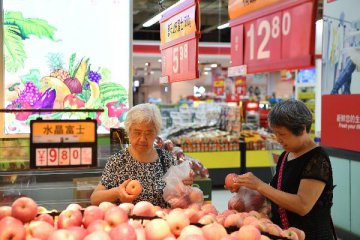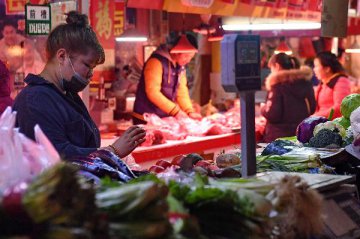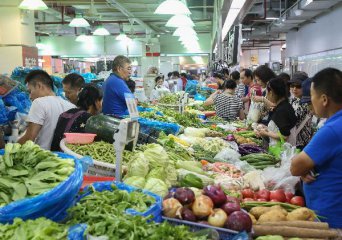Singapore's Consumer Price Index (CPI) grew 0.7 percent in August, 0.1 percentage points higher than that in July, said the Ministry of Trade and Industry and Monetary Authority of Singapore (MAS) in a joint release on Monday.
The MAS Core Inflation, which excludes the costs of accommodation and private road transport, came in at 1.9 percent on a year-on-year basis, unchanged from the previous month.
The authorities attribute the larger CPI inflation to a more gradual decline in accommodation costs. They also said the MAS Core Inflation kept unchanged, as higher retail and food inflation offset a moderation in services inflation.
In a breakdown, Singapore's accommodation costs fell by 2.6 percent year on year in August, the private road transport costs decreased by 0.2 percent year on year, the overall cost of retail items increased by two percent year on year, the food inflation edged up to 1.7 percent year on year, and the services inflation eased to 1.3 percent year on year.
Looking forward, Singapore is likely to see mild increase of imported inflation, while the domestic sources of inflation are expected to increase alongside a faster pace of wage growth and a pickup in domestic demand.
According to the joint release, Singapore's CPI inflation is expected to be at the upper half of the 0-1 percent forecast range this year. The MAS core inflation is expected to rise gradually over the course of 2018 to come in at the upper half of the 1-2 percent forecast range.
The MAS Core Inflation, which excludes the costs of accommodation and private road transport, came in at 1.9 percent on a year-on-year basis, unchanged from the previous month.
The authorities attribute the larger CPI inflation to a more gradual decline in accommodation costs. They also said the MAS Core Inflation kept unchanged, as higher retail and food inflation offset a moderation in services inflation.
In a breakdown, Singapore's accommodation costs fell by 2.6 percent year on year in August, the private road transport costs decreased by 0.2 percent year on year, the overall cost of retail items increased by two percent year on year, the food inflation edged up to 1.7 percent year on year, and the services inflation eased to 1.3 percent year on year.
Looking forward, Singapore is likely to see mild increase of imported inflation, while the domestic sources of inflation are expected to increase alongside a faster pace of wage growth and a pickup in domestic demand.
According to the joint release, Singapore's CPI inflation is expected to be at the upper half of the 0-1 percent forecast range this year. The MAS core inflation is expected to rise gradually over the course of 2018 to come in at the upper half of the 1-2 percent forecast range.
























Latest comments